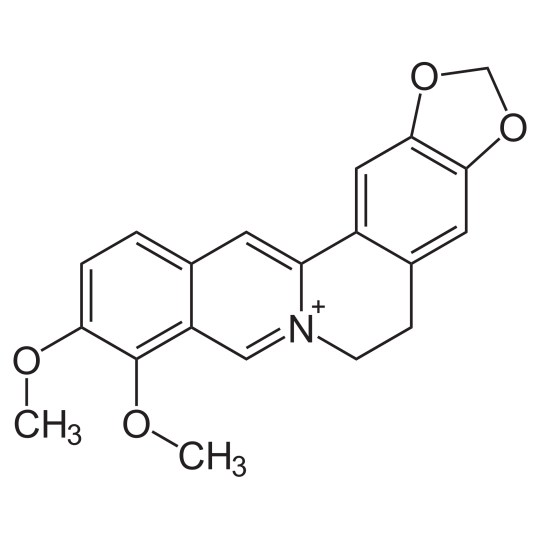Berbérine Analysis
Laboratory analysis of dietary supplements to certify the presence of berberine and measure its concentration.
The level of uncertainty of the berberine content analysis depends on the declination selected (Standard <20%, Precise <10% or Regulatory <5%).
Follow the instructions to send your dietary supplement to our laboratory for analysis.
Results within 15 working days of receipt of sample.
Berberine is a natural alkaloid with antimicrobial, anti-inflammatory and hypoglycemic properties. It is used in phytotherapy to manage type 2 diabetes, improve metabolism, reduce cholesterol and support the intestinal microbiota.
Berberine is the active ingredient in a number of dietary supplements and traditional remedies based on plant extracts such as Berberis vulgaris and Coptis chinensis.
Consuming dietary supplements ordered from dubious or illegal sites may present a health risk. It is essential to check that the supplier is serious and has all the necessary authorizations.
If you have any doubts about the origin of a dietary supplement, you should carry out an analysis to certify the presence of the active ingredient and check that its dosage complies with the indicated content.
Analysis
Berberine is analyzed by liquid chromatography coupled with detection by UV-Visible spectrophotometry (HPLC-UV Visible).
Chemical name
- Chemical name: Berberinium chloride
- Gross formula: C20H18NO4Cl
- CAS number: 2086-83-1
Therapeutic class
Berberine belongs to the class of isoquinoline alkaloids with the following properties:
- Antidiabetic and hypoglycemic: improves insulin sensitivity and lowers blood sugar levels.
- Antimicrobial and antiparasitic: effective against certain bacteria, fungi and protozoa.
- Cardioprotective: reduces LDL cholesterol and triglycerides.
- Anti-inflammatory and antioxidant: protective action on the liver and intestinal microbiota.
Description of therapeutic effects
Berberine acts on several metabolic and biological pathways, including activation of AMPK (an enzyme regulating cellular metabolism), modulation of intestinal microbiota and reduction of oxidative stress.
- Regulation of blood sugar levels by improving glucose absorption and insulin sensitivity.
- Reduces LDL cholesterol and triglycerides, with a cardioprotective effect.
- Antimicrobial action, effective against certain bacterial and parasitic infections.
- Support for intestinal microbiota, used to improve digestion and treat certain gastrointestinal disorders.
- Potential neuroprotective effect, studied for its impact on neurodegenerative diseases such as Alzheimer's.
Trade names
- Berberine-based dietary supplements under various brand names
- Berberine-rich plant extracts (Berberis vulgaris, Coptis chinensis)
Examples of manufacturers
- Thorne Research
- Now Foods
- Pure Encapsulations
- Solaray
- NutriGold
Precautions and side effects
Precautions for use
- Not recommended for pregnant and breast-feeding women, as it can cross the placenta and affect the fetus.
- To be avoided by young children, except on medical advice.
- May interact with drugs such as antidiabetics, anticoagulants and antibiotics.
- Caution in case of hypotension or hypoglycemia, as it may reinforce these effects.
- Do not exceed recommended doses, as excess may lead to digestive disorders or more serious side effects.
Possible side effects
- Common: digestive disorders (diarrhoea, constipation, abdominal cramps).
- Occasional: drop in blood pressure, fatigue, headaches.
- Rare but serious: interaction with certain drugs which may cause severe hypoglycemia or liver problems in the event of prolonged overdose.
⚠️ Drug interactions: berberine may reinforce the effect of antidiabetic, antihypertensive and anticoagulant drugs, requiring doses to be adjusted under medical supervision.
Specific References
Your drug is analyzed by our expert pharmaceutical analysis laboratory.
The drug to be analyzed must be sent in at least 3 copies in its original packaging (box or vial + blister pack) in order to have all the information.
The drug to be analyzed must be sufficiently protected to avoid any deterioration or damage during transport.
The drug to be analyzed must be accompanied by the completed analysis form.
Documents to download:
The use of counterfeit or illegal medicines (without patent authorisation) presents a proven risk to patients' health:
- Absence of the active ingredient
- Under-dosage of the active ingredient
- Over-dosage of the active ingredient
- Toxic synthetic or degradation impurities
- Presence of another active ingredient
- Toxic excipients
- Presence of toxic residual solvents
- ...
The trade in counterfeit medicines is flourishing and growing exponentially with online trading. The authorities believe that more than half of all medicines sold over the Internet are counterfeit or illegal.



